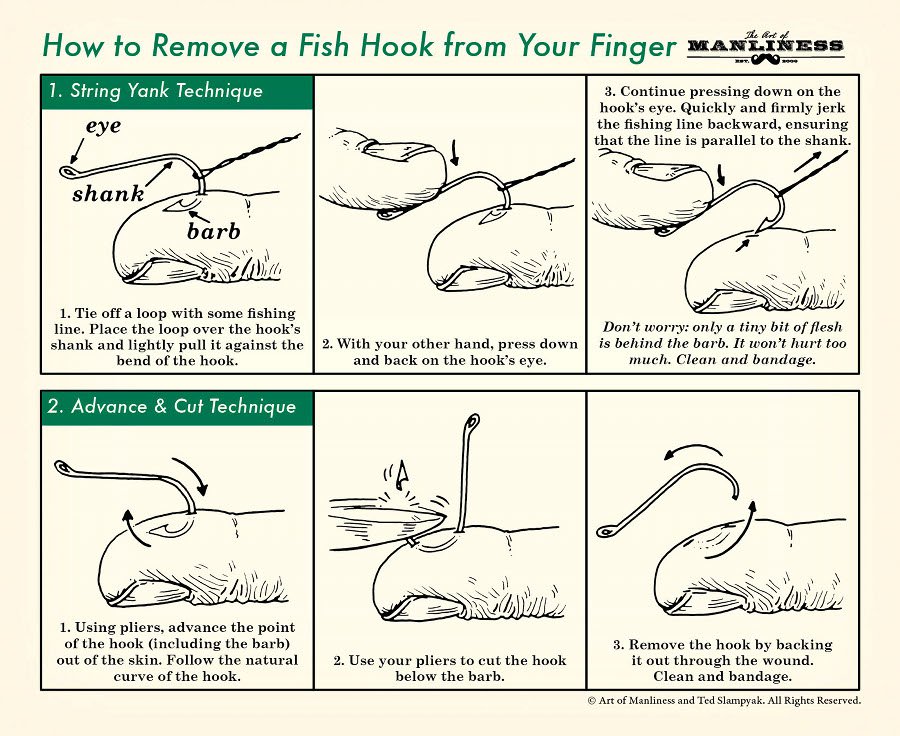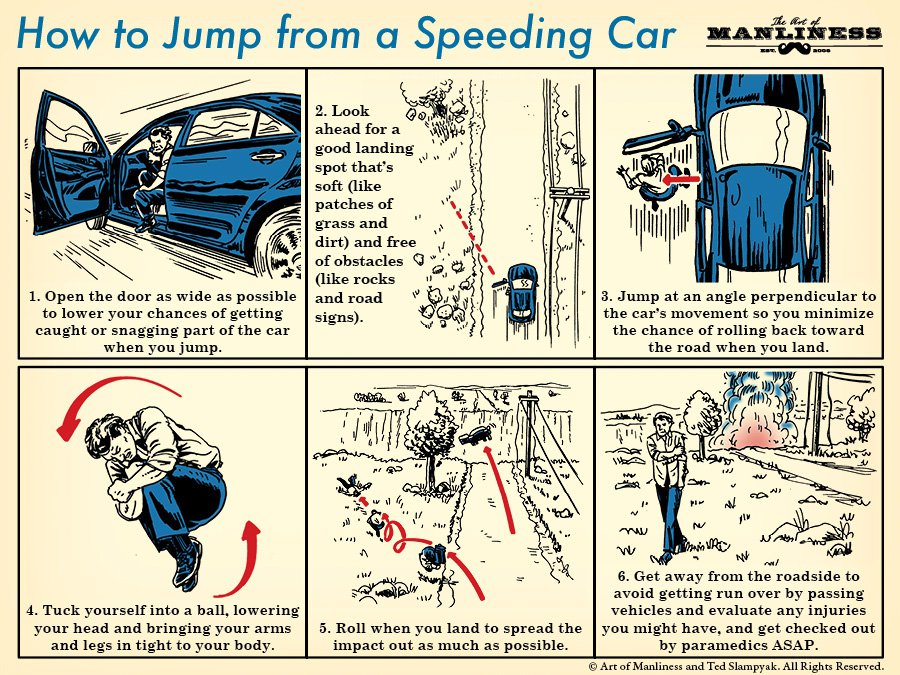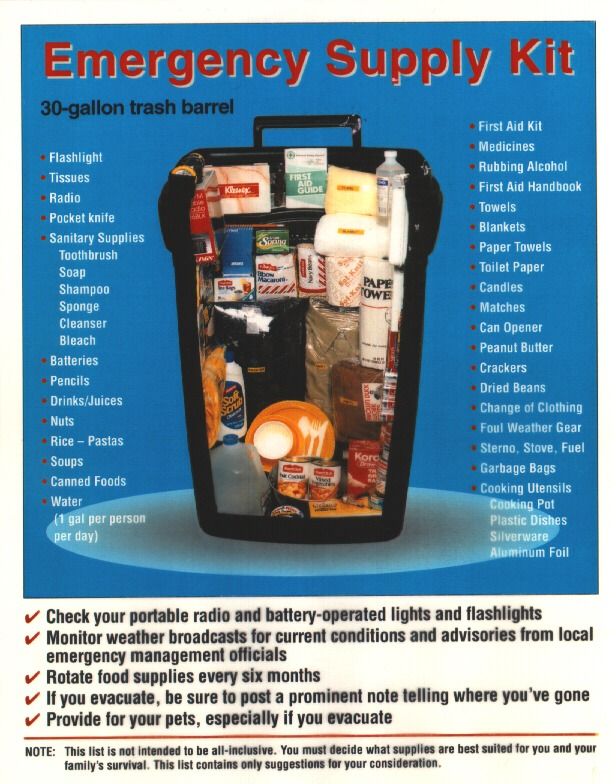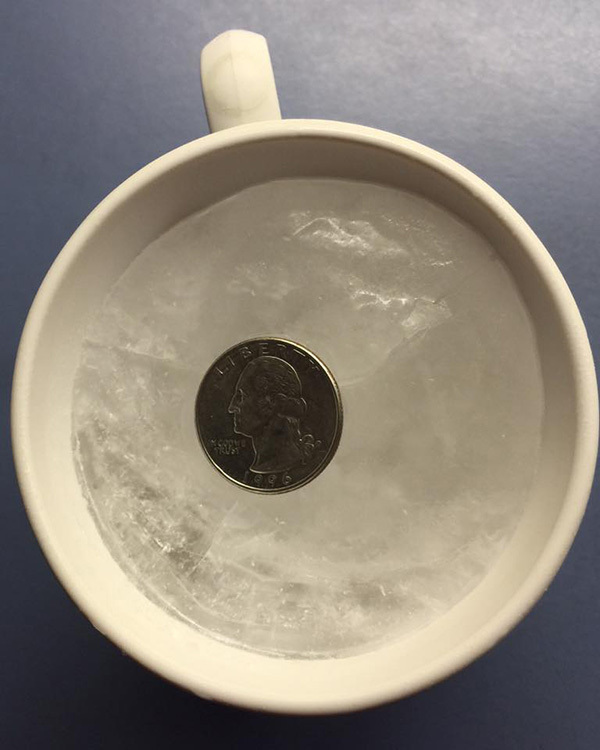
Nothing ruins a relaxing of day of fishing like catching yourself on your own fish hook. Here are two methods you can use to carefully remove the hook without causing serious damage. The key to removing a fish hook, as this guide from The Art of Manliness explains, is minding the barb at the end of the hook. To remove it from your skin, you need to tie some line to the curved shank part of the hook, then apply pressure to the eye part of the hook to reduce the damage the barb will do on its way out. Keep the line taut while you push down on the eye, then quickly jerk on the line to pull the hook out. It will probably hurt still, but it’s the most efficient way to do it. If the hook is really far in there, the “advance and cut” technique has you push the hook the rest of the way through your skin. Once it’s through, you can clip off the barb and pull the hook easily through your skin. |
To Refrigerate Or Not
How To Of The Day: How To Jump From A Speeding Car
It’s a classic Hollywood scenario. The bad guy cuts the brake lines, the good guy gets in the car, and chaos ensues on a steep road. While you’re unlikely to be the target of a villainous act like severed brake lines, it’s not unreasonable for brakes to fail. If you find yourself in a runaway car with no means of slowing yourself down, your best bet might be to bail. Here’s how to do so in a way that ensures your best chances for survival.
30-Gallon Trash Barrel Emergency Supply Kit
Why You Should Always Put A Coin In The Freezer Before You Leave Home
Simple, effective – and definitely a money saver, because you don’t have to toss loads of food unnecessarily.Have you ever come home from vacation, business trip or maybe a weekend away with the family – and noticed your digital clocks flashing the wrong time?You quickly realize that you had a power outage while you were away, but it’s basically impossible to tell when it occurred or how long it lasted. It’s therefore also impossible to tell just how long the food in your freezer may have thawed, gotten destroyred, and then frozen again. Or is it? In connection with Hurricane Matthews which swept over parts of the United States, a woman named Sheila Pulanco Russell shared a clever trick on her Facebook wall with anyone who was forced to evacuate their home. But the trick is certainly also good to know in case of any prolonged departure from your home – and will ease your mind about whether or not the food in your freezer is good to eat – or best be thrown out right away. The trick lies in the magical combination of three simple but effective tools everyone already has at home: a mug, a coin and some tap water. In a Facebook post which quickly received hundreds of thousands of reactions and shares, Sheila explains how to proceed. She writes:
Please share this nifty trick on to all your friends!
|



